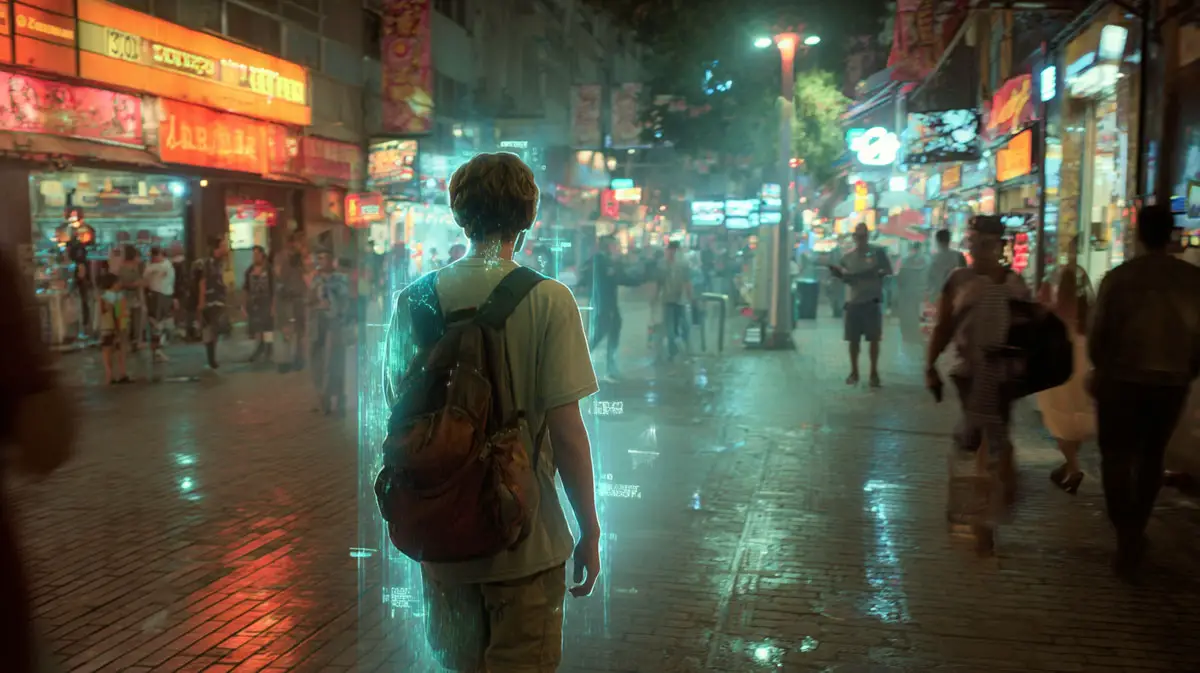Smarter Travel with AI: Planning to Safety

Travel has always been about discovery, adventure, and connection. Yet, it is also filled with challenges—from comparing flight prices to navigating unfamiliar cities and staying safe abroad. Today, Artificial Intelligence (AI) is transforming every stage of the travel experience, promising smarter, faster, and more personalized journeys. But how far can AI go in shaping the way we move around the world?
AI at the Heart of Modern Travel
The New Travel Assistant
AI is becoming the invisible backbone of the travel industry. From dynamic flight pricing engines to hotel recommendation systems, algorithms already influence most decisions travellers make. In fact, a 2023 Amadeus report revealed that 84% of travelers used at least one AI-driven tool when booking trips online.
Beyond Booking
It’s not just about cheaper flights. AI helps forecast weather patterns, manage airport operations, and provide real-time updates during travel disruptions. By processing enormous datasets in seconds, AI enables smoother journeys for millions of people daily.
AI in Trip Planning: Efficiency Meets Personalization
Smart Flight and Hotel Searches
Platforms like Skyscanner and Booking.com deploy machine learning to tailor results. Instead of generic lists, travellers now see options ranked by personal preference, previous searches, and even sustainability ratings.
Customised Itineraries
AI-powered apps like Utrip analyse a traveller’s budget, hobbies, and schedule to generate day-by-day itineraries. Instead of hours of manual planning, travellers can receive curated cultural, culinary, and leisure suggestions in seconds.
Local Recommendations in Real Time
Once abroad, travellers rely on AI-driven apps that suggest restaurants, museums, and hidden gems based on location and preferences. Google Maps, for instance, now incorporates AI-driven crowd predictions to help tourists avoid long queues.
Enhancing Safety with AI
Real-Time Alerts
AI-powered safety apps use geolocation and predictive analytics to warn travellers of potential risks, from natural disasters to political unrest. Companies like Sitata combine government advisories with AI-driven risk assessment, offering travellers immediate guidance.
Smarter Transport Safety
AI also enhances physical safety. Autonomous buses in certain European cities already use AI-driven sensors to avoid accidents. In aviation, predictive AI systems help airlines identify potential maintenance issues before they cause flight delays or emergencies.
Fraud and Cybersecurity Protection
As travel becomes more digital, fraud risks increase. AI systems used by Mastercard and Visa prevented billions in fraudulent transactions in 2022, protecting both travellers and businesses.
Expert Perspectives on AI in Travel
Travel experts stress that while AI can improve efficiency, it must be balanced with human judgment.
“AI can recommend the best route or flag security concerns, but it cannot replicate the human empathy of a guide or the intuition of an experienced traveller,” says Dr. Laura Bennett, a digital tourism researcher at the University of Surrey.
Her insight highlights that AI should complement, not replace, human decision-making in travel.
Midpoint Reflection: AI as a Travel Companion
At this stage, it becomes clear that AI is not just a background technology but a potential travel partner. When travellers face confusion—such as interpreting foreign transport instructions or adapting itineraries—they can simply ask Overchat AI or similar assistants to reframe information in clearer terms. This kind of collaborative support demonstrates how AI works alongside human needs, providing reassurance and practical guidance without diminishing personal choice.
Future Trends in AI Travel
Augmented Reality (AR) for Exploration
AI will soon merge with AR to create immersive experiences. Imagine pointing your phone at Cardiff Castle or the Eiffel Tower and instantly receiving a personalised historical narrative tailored to your interests.
Sustainable Travel with AI Guidance
AI will increasingly guide travellers toward eco-friendly options—suggesting low-carbon flights, highlighting green hotels, or recommending local businesses that promote sustainability.
Voice and Multilingual AI Assistants
Language barriers will fade as AI translation tools become near-instantaneous. Apps like DeepL and Google Translate already offer real-time translation, but the next step will be seamless conversation through wearable devices.
Challenges and Ethical Considerations
Data Privacy
AI-powered services rely on personal data—from geolocation to purchasing history. Protecting this data is essential to maintain traveller trust.
Digital Divide
Not all travellers have equal access to AI-driven tools. Rural areas or less-developed countries may not offer the same seamless experience, raising concerns about accessibility and fairness.
Human Element
Over-reliance on AI risks making travel overly automated. The joy of discovery often comes from spontaneity and human interaction, something no algorithm can fully replicate.
Conclusion: Smarter Travel, Human Touch
AI is transforming travel into a smarter, safer, and more personalised experience. From trip planning and real-time updates to safety alerts and translation tools, it reshapes nearly every aspect of the journey.
Yet, the essence of travel—discovery, human connection, and cultural exchange—remains irreplaceable. The smartest approach is not to let AI dictate experiences but to use it as an assistant that enhances freedom and choice.
For travellers in the AI age, the goal is clear: let the algorithms handle the complexity, while you focus on the adventure.










